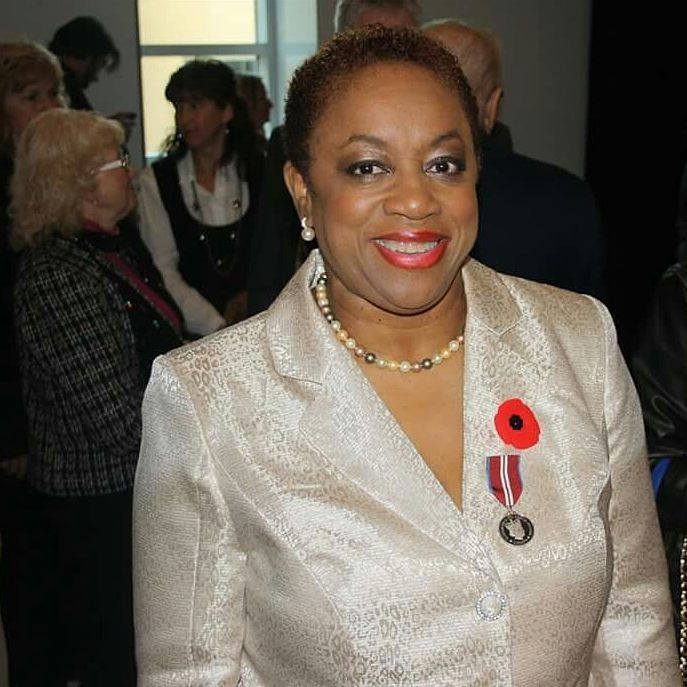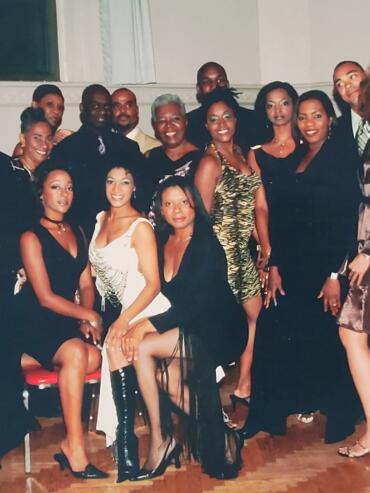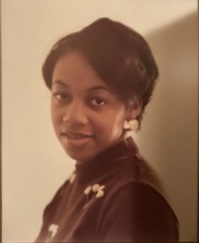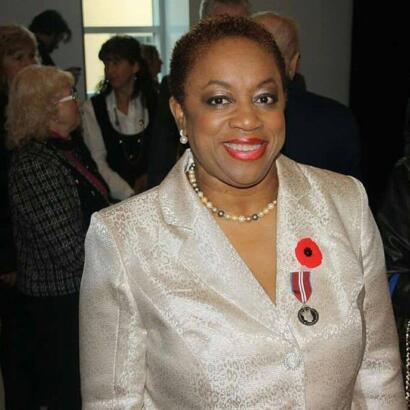June 2024
Month 20xx
Emily Gianakopoulos and Sara Belas
Charmaine Gooden
Jacob Marion
What began in Gemma Raeburn-Baynes’ youth as makeshift fashion shows in her Grenada home, evolved into a remarkable career, opening doors for Black women in the fashion industry. Raeburn-Baynes has dedicated her career to creating opportunities for her community, and at 73, she has no plans to stop.
Early Life and Career
Raeburn-Baynes grew up in Saint Patrick, Grenada, the country’s northernmost parish. By age nine, Raeburn-Baynes, one of the few children in her tiny village who went to school, attended St. Joseph’s Convent, where her passion for fashion first sparked. Even as a little girl, her desire to help those less fortunate was always present. She would gather the village children who couldn’t attend school and teach them what she had learned. Her mother nurtured her interest in fashion, helping her create fashion shows involving the other village children.
“My mom would make little dresses for the girls and short pants and shirts for the boys. We would invite their parents at the end and have them parade in these beautiful clothes. The kids felt so happy showing their parents how beautiful they looked,” Raeburn-Baynes recalls.
In 1964, when she was thirteen, her family moved to Montreal, where her interest in fashion continued to flourish. At D’Arcy McGee High School, she stayed involved in fashion shows and began noting the lack of Black representation in Canadian media.
By 1972, Raeburn-Baynes, her sister Ann and best friend Dale King, had formed the Montreal Ebony Models, teaching young Black models everything they knew about fashion.
role of race
Her desire to change this representation gap ignited the beginning of her legacy within the Canadian fashion community. Seeing the severe lack of representation inspired her to approach The Gazette, Montreal’s first and only English-language newspaper. She questioned Iona Monahan, a well-known fashion journalist, about the absence of Black models. Impressed by Raeburn-Baynes’ boldness, Monahan asked if she’d be willing to gather models to bridge the gap. Raeburn-Baynes agreed, already connected to the modelling world through her sister, Anne.
By 1972, Raeburn-Baynes, her sister Ann and best friend Dale King had formed the Montreal Ebony Models, teaching young Black models everything they knew about fashion. That autumn, she connected with Joanne Sternthal, a prominent figure in Montreal’s Jewish community, who began hiring Black models after seeing their unique style and rhythm. “She loved the Black models, how they walked and the rhythm [they had], so she started hiring us,” says Raeburn-Baynes, “and that’s how I started.”
Raeburn-Baynes’ consistent altruism is evident in her charitable efforts. “It was all for charity. We never got paid; the models never got paid. We did it to raise funds for different causes,” she explains. Her resilience and dedication are highlighted in a Montreal Gazette article by Sara King-Abadi, describing how, during times of her own illness, Raeburn-Baynes coordinated community events from her hospital bed.
Notable foundations she supported include The Canadian Sickle Cell Society and the Hope and Cope Cancer Wellness Centre at the Jewish General Hospital in Montreal. Through her fashion shows, she raised over $2 Million for various charities, giving fashion a deeper, more meaningful purpose.
By 1980, Raeburn-Baynes had started the Miss Black Quebec pageant to provide Black women with an opportunity to be recognized and build confidence. Her influence extended internationally, with several of her models achieving recognition in Germany, France, and the United States.
In 2015, she celebrated the 25th anniversary of Montreal Ebony Models and produced the first Montreal Caribbean Fashion Week, celebrating Caribbean-inspired fashion and culture. The event brought together the older generation of models she had mentored, showcasing a fashion show reflecting her years of experience. By 2017, Caribbean Fashion Week had expanded significantly, featuring performances by notable artists, designers and models from across the islands.
Influence and Legacy
Raeburn-Baynes is a trailblazer, as evident through her community influence and numerous accolades, including the Queen Elizabeth II Diamond Jubilee Medal from the Lieutenant Governor of Quebec and being named one of ABC Women’s 100 Accomplished Black Canadian Women.
At 73, she remains active, recently creating the Gemstar Scholarship for Black Students to promote academic excellence and youth involvement in the Black community.
For young Black creatives, she advises staying true to oneself and understanding the industry’s competitiveness, emphasizing the importance of bringing one’s style and personality to everything you do.
Though diversity and inclusion in fashion are ongoing, systemic issues, trailblazers like Raeburn-Baynes have opened doors for women of colour. During a time when Black representation was scarce, she broke barriers to create platforms for Black models to thrive in a racially exclusive industry. Her many empowering career ventures are a testament to her boldness, resilience, and intellect.
She questioned Iona Monahan, a well-known fashion journalist, about the absence of Black models. Monahan asked if she’d be willing to gather models to bridge the gap.





